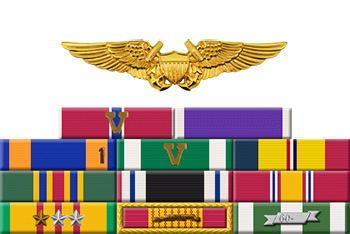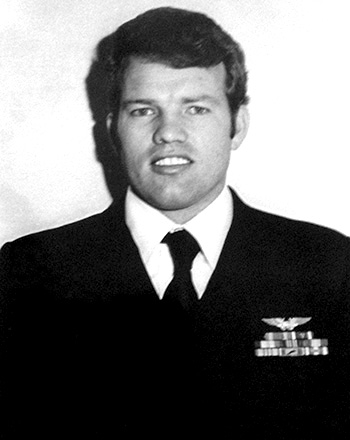
|
William J. Mayhew |
 |
|||
| Rank, Service | ||||
Lieutenant Commander O-4, U.S. Navy |
||||
| Veteran of: | ||||
|
||||
| Tribute: | ||||
Bill Mayhew was born in 1942 in Pughtown, West Virginia. After graduating with a bachelor's degree from Geneva College in Beaver Falls, Pennsylvania, he entered Naval Officer Candidate School on October 22, 1964, and was commissioned an Ensign in the U.S. Navy on March 5, 1965, at Newport, Rhode Island. His first assignment was as an Air Controller and Assistant Operations Officer with Fleet Air Control and Surveillance Facility San Diego, California, from April 1965 to September 1966, followed by Naval Flight Officer training at NAS Pensacola, Florida, from September 1966 to September 1967. LT Mayhew next completed Radar Intercept Officer (RIO) training and F-4B Phantom II replacement air group training with VF-121 at NAS Miramar, California, from September 1967 to April 1968, and then served as an F-4B RIO with VF-142 at NAS Miramar and then deployed aboard the aircraft carrier USS Constellation (CV-64) from April 1968 until he was forced to eject over North Vietnam and was taken as a Prisoner of War on August 17, 1968. After spending 1,671 days in captivity, LT Mayhew was released during Operation Homecoming on March 14, 1973. He was briefly hospitalized to recover from his injuries at Bethesda Naval Hospital in Bethesda, Maryland, and then served as an Instructor with the Navy ROTC unit at the University of New Mexico from November 1973 to August 1976. LCDR Mayhew's final assignment was as a Training Officer with VT-86 at NAS Pensacola from August 1976 until he left active duty on May 12, 1978. |
||||
|
||||

